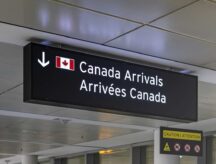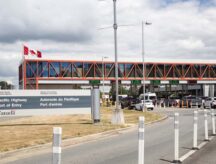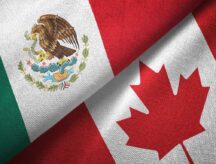Canada’s hotel quarantine should end, says COVID-19 panel
The scientific panel that advises the Canadian federal government on COVID-19-related issues is now recommending ending the mandatory hotel quarantine.
Since February 22, air travellers to Canada have been required by law to check in to a government-approved hotel for three days upon arrival.
They are required to take a COVID-19 test upon arrival, and stay at a hotel until they receive their results. They are then required to complete their mandatory 14-day quarantine period. The three-day hotel stay can count towards the 14 days.
The panel's reasons include the cost, as well as the fact that three days is not the same as what is known about the virus' incubation period.
Discover if you are eligible for Canadian immigration
Despite suggesting to remove the hotel stay requirement, a quarantine period would still be required.
This was one of many recommendations about easing Canada's travel restrictions. The panel also discussed whether vaccinated individuals need to quarantine at all.
The panel says that rules shouldn’t change quickly, but maintains that its proposed approach is "evidence-informed and reflects the global situation on SARS-CoV-2 and vaccine effectiveness."
They have outlined rules for five groups of travellers, including those who:
- aren't vaccinated and not exempt from the current travel restrictions;
- are partially vaccinated and not exempt from the current travel restrictions;
- are fully vaccinated and not exempt from the current travel restrictions;
- have previously been infected with the virus, and you are not exempt from the current travel restrictions;
- are exempt from the travel restrictions.
Currently, travellers to Canada are required to show a COVID-19 test taken within 72 hours of travelling. They must also take another COVID-19 test upon arrival, and quarantine at a hotel for three days while they wait for their results. They will still have to complete their 14 day quarantine after leaving the hotel, and will have to take another COVID-19 test on day 10 of this quarantine period.
The panel suggests that travellers who are fully vaccinated shouldn’t have to quarantine or take a COVID-19 test after 10 days. However, they would still have to take a COVID-19 test on arrival, and go into quarantine if positive.
Unclear whether the hotel quarantine works
The panel concluded that it is not clear whether the three-day hotel stay for air travellers worked as intended.
“While a mandatory three-day initial quarantine in government-authorized accommodations obviously improves compliance during those three days, the level of compliance after is uncertain,” the panel said.
Compliance for the COVID-19 test taken on the tenth day of quarantine has not been even.
According to the Public Health Agency of Canada, between February 22 and March 6, there were 31,616 COVID-19 samples ready for testing. However, only 21,100 samples were submitted for the second test.
This shows a lack of compliance for the second test.
Shorter quarantine
The panel is suggesting that a seven-day quarantine with a test at the end of the quarantine period is more effective than a 14-day quarantine without a test.
“Requiring a test at day seven of quarantine to facilitate exit may prove to be an incentive and thus increase compliance, resulting in more robust surveillance,” the panel said.
The incubation period for the virus is longer than three days. Many COVID-19 cases were discovered after about a week. This shows that the three-day hotel stay may be less effective than expected.
The hotel quarantine was criticized as being expensive and unfair. The panel had the same reasons when suggesting it should be removed.
However, the panel maintained that there should still be a quarantine period for incoming travellers.
Who is exempt from the travel restrictions?
Canada still allows essential travellers to enter the country. Those travelling for reasons such as entertainment, shopping or tourism.
Canadians, permanent residents and their family members are exempt from the travel restrictions currently in place.
Some temporary foreign workers and international students attending a designated learning institution that has a COVID-19 readiness plan are also exempt.
Exemptions can also be given to protected persons and those who wish to come to Canada for a compassionate reason.
To see a list of everyone who is exempted, visit this government webpage.
Discover if you are eligible for Canadian immigration
© CIC News All Rights Reserved. Visit CanadaVisa.com to discover your Canadian immigration options.
- Do you need Canadian immigration assistance? Contact the Contact Cohen Immigration Law firm by completing our form
- Send us your feedback or your non-legal assistance questions by emailing us at media@canadavisa.com







